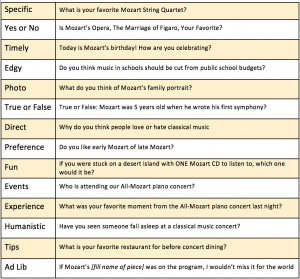Crypto And The Curious Consumer: As Education Continues To Rise, Will Investment Follow Suit?
I no longer have that compulsion to open my crypto app. If you rank as a crypto investor, you can likely attest to a similar addiction from just a few short months ago.
We experienced a meteoric rise, a temporary zenith, and then a continuous (interminable?) descent. It seems we all flew a bit too close to the sun; some of us got burned. And that’s the rub — we thought we were knowledgeable about this new and flourishing digital currency.
Maybe we didn’t know as much as we thought.
To find out where most crypto investors stand today in terms of their knowledge (and to set a benchmark for continued testing), we tapped into our platform. Over 11,000 consumers joined our survey on “emerging financial technology” and gave us a peek into the mainstream penetration of Bitcoin, cryptocurrency, and the blockchain.
To wit, at the time of writing this, Bitcoin, the first and most popular cryptocurrency, had been declared “dead” by media outlets 278 times since its inception in 2010. Its repeated death notwithstanding, the value of one Bitcoin has risen from near zero to over USD $6,000 since that time, with its per-coin value peaking around USD $19,000 in December 2017. During that same time, Google search volume for Bitcoin and blockchain (the technology underlying cryptocurrencies) rose by 20x and 50x respectively. Whatever the media has to say about Bitcoin, cryptocurrencies, and blockchain, they are decidedly not dead.
The results that our research delivered weren’t that surprising, given the technology’s nascency.
That said, we didn’t know as much as we thought.
Of the 11,000 respondents surveyed, only 28.2% had heard of cryptocurrencies, and a slim 9.6% were familiar with the underlying blockchain technology. Of those familiar with cryptocurrency, Bitcoin was by far the most recognized, by 92% of those members. Litecoin and Ethereum, the #5 and #2 market cap cryptocurrencies, respectively, were next in line. Education level, income level, and youth were all positively correlated with increased familiarity with these technologies — highly educated millenials were the most likely to say they were very or somewhat familiar with the tech.
Despite nearly 30% of respondents having knowledge of cryptocurrency, most are wary of investing; many reported that crypto is too risky (42%) and volatile (25%). Only 9% of those surveyed have actually invested in cryptocurrencies, with the majority of those reporting they’ve invested less than $1,000 in crypto.
We were shocked to find a large mismatch between perceived and actual knowledge of blockchain tech. Of the 35% of members who reported having some knowledge of blockchain technology, only 40% of them could correctly define it by picking the definition out of a list. Of those who have invested in cryptocurrency, only 20% could do so. Results were even more grim when members were asked to define other basic blockchain concepts like “mining,” the process by which blockchain transactions are verified.
Cryptocurrencies like Bitcoin and blockchain technology in general have long been interesting primarily to a small group of tech-savvy enthusiasts. Now, with interest continuing to increase, we plan to track the level of knowledge within crypto investors to see if growing interest correlates to a more knowledgeable investor. If not, we are perpetuating a scenario where the majority of crypto investors are spurred on by hype and fear of missing out, rather than motivated by the intrinsic value of cryptocurrency and blockchain as a technology.
The discrepancies between action and knowledge give some credence to those who forecasted a “bubble” about the crypto explosion, but still there’s room for optimism. Cryptocurrencies and blockchain tech have come a long way since 2010, and with nearly half of our respondents looking forward to learning more about both, we expect these results to look very different in the future.
(28)









